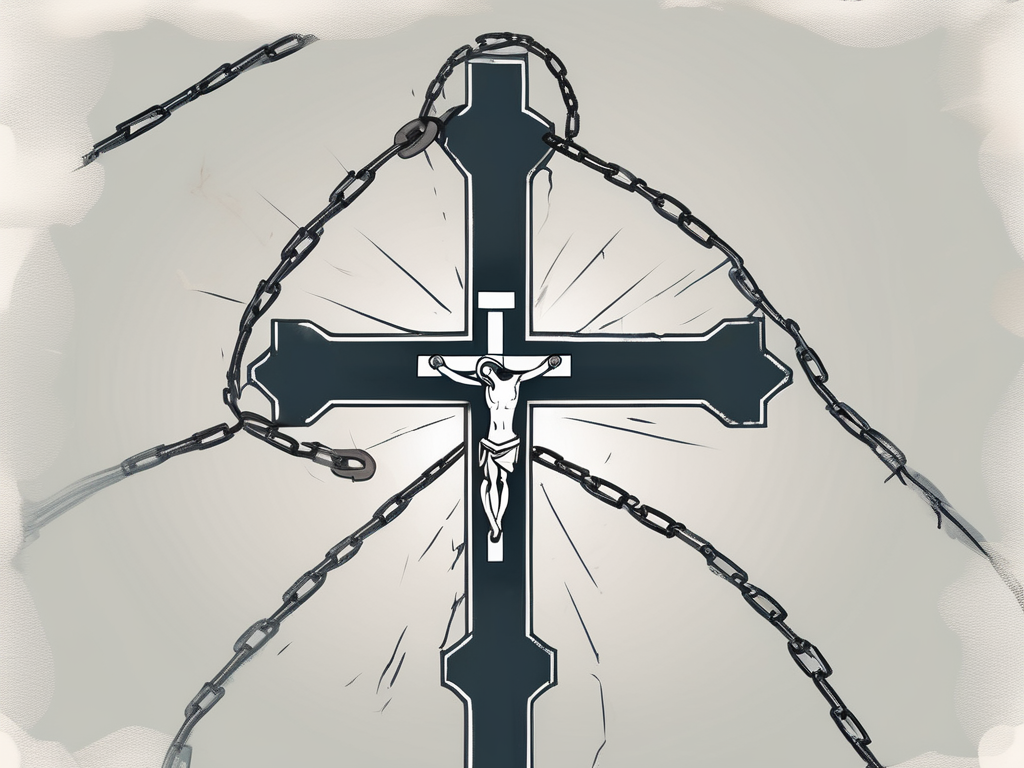Predestination is a fascinating concept that lies at the heart of Calvinist theology. It sparks debates and divides opinions among Christians, but it undeniably holds great theological significance. In this article, we will delve into the depths of predestination, exploring its meaning, biblical basis, historical context, and theological implications. We will also touch upon the criticisms, controversies, and relevance of this doctrine in contemporary Christian thought. So, let’s begin this enlightening journey by understanding the concept of predestination.
Understanding the Concept of Predestination
Predestination, in simple terms, refers to the belief that God has foreordained the eternal destiny of every human being. According to Calvinist theology, before the foundation of the world, God sovereignly chose certain individuals for salvation and predestined them to be saved by His grace. This divine election is not based on anything inherent in the individual but solely on God’s sovereign will.
But where does this belief find its roots? Let’s explore the biblical basis of predestination.
The Biblical Basis of Predestination
The concept of predestination finds its foundation in various passages of the Bible. One such example is found in Ephesians 1:4-5, where the apostle Paul writes, “For he chose us in him before the creation of the world to be holy and blameless in his sight. In love, he predestined us for adoption to sonship through Jesus Christ, in accordance with his pleasure and will.“
These verses highlight God’s initiative in choosing, predestining, and adopting believers as His children. They emphasize how predestination is a part of God’s eternal plan for the salvation of His people.
Another biblical passage that speaks to the concept of predestination is Romans 8:29-30. Here, Paul states, “For those God foreknew he also predestined to be conformed to the image of his Son, that he might be the firstborn among many brothers and sisters. And those he predestined, he also called; those he called, he also justified; those he justified, he also glorified.“
This passage further emphasizes God’s foreknowledge and predestination of believers, highlighting the divine orchestration of the entire process of salvation from beginning to end.
The Historical Context of Predestination
Understanding the historical context in which the doctrine of predestination emerged helps shed light on its theological significance. In the 16th century, during the Protestant Reformation, theologian John Calvin played a pivotal role in shaping Reformed theology. Calvin’s understanding of predestination became a key tenet of Calvinism, distinguishing it from other theological perspectives.
Calvin’s teachings on predestination were not without opposition. Many theologians and religious leaders of the time, such as Jacobus Arminius, challenged Calvin’s views and proposed alternative understandings of God’s sovereignty and human free will.
Nevertheless, Calvin’s teachings left a lasting impact on Christian thought, laying the groundwork for further theological developments. The doctrine of predestination continues to be a topic of debate and exploration among theologians and believers to this day.
In conclusion, the concept of predestination is rooted in biblical passages that highlight God’s sovereign choice and foreknowledge of believers. It emerged as a significant theological doctrine during the Protestant Reformation and has since shaped the theological landscape of Christianity. While it remains a complex and debated topic, the doctrine of predestination invites believers to contemplate the mysterious ways of God’s plan for salvation.
The Calvinist Perspective on Predestination
Now that we have a grasp of the concept of predestination, let’s explore the Calvinist perspective in more detail. Calvinism asserts that predestination is rooted in two key theological concepts: God’s sovereignty and the doctrine of total depravity.
Calvinism, a branch of Protestant Christianity, places a strong emphasis on the sovereignty of God. This theological perspective asserts that God possesses absolute power and authority over all creation, including human beings. It is within this framework of divine sovereignty that the concept of predestination finds its roots.
Within the Calvinist tradition, predestination is viewed as a reflection of God’s control and authority in determining the eternal destiny of individuals. This means that God, in His infinite wisdom, has chosen certain individuals for salvation while others are destined for damnation.
The Role of God’s Sovereignty
In Calvinist thought, God’s sovereignty takes center stage. It emphasizes the absolute power and authority of God over all creation, including human beings. This sovereignty extends to the divine decision of predestination, enabling God to choose those whom He wills for salvation.
Calvinists believe that God’s sovereignty is not limited by human free will or any external factors. Instead, it is an expression of His divine nature and His right as the Creator to exercise complete control over His creation. This understanding of God’s sovereignty is foundational to the Calvinist perspective on predestination.
Within the framework of God’s sovereignty, predestination is seen as an act of divine grace. It is not based on any merit or worthiness of the individual, but solely on God’s sovereign choice. This means that salvation is entirely a gift from God, given to those whom He has chosen.
Furthermore, the Calvinist perspective on predestination emphasizes that God’s sovereign choice is not arbitrary or random. It is rooted in His perfect knowledge and wisdom. Calvinists believe that God, in His infinite wisdom, knows the end from the beginning and has determined the ultimate destiny of every individual.
Therefore, predestination is not seen as an unjust or unfair act on God’s part, but rather as a demonstration of His perfect justice and wisdom. It is a reflection of His divine plan for the salvation of His chosen people.
The Doctrine of Total Depravity
Calvinism also highlights the doctrine of total depravity, which teaches that all humans are born into a state of sin and are incapable of saving themselves. According to this doctrine, humanity’s sinful nature renders them spiritually dead and unable to seek God. In light of this, predestination becomes a divine solution to the problem of human inability.
The doctrine of total depravity asserts that every aspect of human nature has been corrupted by sin. It affects our thoughts, desires, and actions, making us incapable of choosing God or doing anything to earn our salvation. This doctrine stands in contrast to the belief in human free will and the ability to choose God apart from His divine intervention.
Within the Calvinist perspective, predestination is seen as an expression of God’s mercy and grace towards fallen humanity. By electing individuals for salvation, God extends His grace to those who would otherwise remain trapped in their sinful condition, incapable of choosing Him.
It is important to note that the doctrine of total depravity does not mean that every individual is as evil as they could possibly be. Rather, it emphasizes the pervasive nature of sin and its impact on every aspect of human existence. It is through the lens of total depravity that Calvinists understand the necessity of predestination as a means of salvation.
In conclusion, the Calvinist perspective on predestination is deeply rooted in the concepts of God’s sovereignty and the doctrine of total depravity. It emphasizes God’s absolute control and authority over all creation, including the eternal destiny of individuals. Predestination is seen as an act of divine grace, offering salvation to those whom God has chosen, while highlighting the fallen nature of humanity and the need for God’s intervention.
Theological Significance of Predestination in Calvinism
Predestination carries profound theological implications within the framework of Calvinism. It shapes our understanding of salvation, grace, and the concept of free will.
Calvinists believe that predestination emphasizes the sovereignty of God in salvation. It underscores the truth that salvation is entirely a work of God, not dependent on human merit or effort. This recognition highlights the abundant grace of God, as it is solely by His choice that individuals are saved.
But what does this mean for individuals? How does predestination impact their understanding of salvation and grace?
Understanding predestination leads Calvinists to view salvation as an act of divine grace rather than a reward for human achievement. It reminds them that they are completely dependent on God’s mercy and that there is nothing they can do to earn salvation. This understanding humbles them and leads them to a deep appreciation for the unmerited favor they have received.
Furthermore, predestination challenges the common notion of free will. If God has predetermined our destinies, then where does human choice fit into the equation?
Calvinism reconciles this tension by asserting that God’s sovereignty does not negate human responsibility. Calvinists believe in what is known as “compatibilism,” the idea that God’s sovereign decree and human choices are compatible.
According to this view, human decisions align with God’s predestined plan, even though individuals act according to their own desires and intentions. In other words, while God has predetermined the outcome, individuals still make choices based on their own will.
This understanding of predestination and free will can be challenging to grasp, but it highlights the complexity of God’s sovereignty and human agency. It reminds Calvinists that their choices matter and that they are accountable for their actions, even though God is ultimately in control.
In conclusion, predestination plays a significant role in Calvinism, shaping the understanding of salvation, grace, and free will. It emphasizes God’s sovereignty in salvation, highlighting the abundant grace of God. It also challenges the concept of free will, asserting that God’s sovereign decree and human choices are compatible. This theological framework leads Calvinists to a deep appreciation for God’s mercy and a recognition of their own responsibility in light of His sovereignty.
Criticisms and Controversies Surrounding Predestination
As with any theological doctrine, predestination has faced its fair share of criticisms and controversies. One significant objection comes from the Arminian perspective, which challenges Calvinism’s understanding of divine election.
The Arminian Objection
Arminians argue for a different understanding of election that emphasizes human free will and cooperation with God’s grace. They contend that God desires the salvation of all individuals and grants them the opportunity to respond to His offer of salvation, rather than predestining certain individuals to eternal life.
This objection raises important questions about the nature of God’s relationship with humanity. If God predestines some to be saved and others to be damned, does this not undermine the idea of a loving and just God? Arminians argue that predestination, as understood by Calvinists, limits God’s love and undermines human responsibility.
The debate between Calvinism and Arminianism has long been a subject of theological discourse, highlighting the complex nature of predestination and its implications. The tension between divine sovereignty and human free will is a challenge that theologians continue to grapple with.
The Question of Divine Justice
Another controversy surrounding predestination revolves around the perceived tension between God’s sovereignty and human notions of justice. Critics argue that predestination seems to conflict with the idea of a just God who offers salvation to all people.
Calvinists address this concern by emphasizing that God’s justice is compatible with His sovereign choice. They assert that God’s election is not arbitrary but based on His divine wisdom, extending grace to undeserving sinners according to His good pleasure.
However, this does not fully resolve the tension. Critics argue that if God predestines some to be saved and others to be damned, it raises questions about the fairness of such a system. How can a just God condemn individuals to eternal punishment without giving them a fair chance to choose salvation?
These questions of divine justice and fairness continue to be debated among theologians and scholars. Some propose alternative interpretations of predestination that seek to reconcile God’s sovereignty with human notions of justice, while others maintain the traditional Calvinist understanding.
Ultimately, the controversies and criticisms surrounding predestination highlight the profound theological and philosophical questions that arise when grappling with the nature of God’s relationship with humanity. The topic of predestination is far from settled, and the ongoing discourse serves as a reminder of the complexity and mystery of divine providence.
Relevance of the Doctrine of Predestination Today
Although predestination has a long history and continues to be a topic of theological debate, its relevance today extends into various aspects of modern Christian thought.
Influence on Modern Christian Thought
Predestination has influenced the development of theological concepts such as perseverance of the saints and assurance of salvation. It shapes our understanding of the security and certainty of our salvation in God’s hands, giving believers assurance and hope in their faith journey.
Moreover, predestination highlights the sovereignty and unchanging nature of God, providing a foundation for trust in His faithfulness and love.
Predestination in Contemporary Calvinist Churches
Within contemporary Calvinist churches, the doctrine of predestination remains a significant element of their theological framework. It informs their understanding of salvation, worship, and the various facets of Christian life.
While not all Christians embrace Calvinist theology or its doctrine of predestination, its impact on the broader landscape of Christianity cannot be overlooked.
Unveiling the Theological Significance
As our exploration of predestination comes to a close, we have seen how this doctrine carries significant theological weight within Calvinism. It reflects God’s sovereignty, showcases His grace, and raises profound questions about human free will. Criticisms and controversies surround it, but its relevance in modern Christian thought endures.
Predestination may remain a mysterious and thought-provoking subject, but it invites believers to ponder the depths of God’s wisdom and to trust in His divine plan. While the doctrine of predestination may be complex, it ultimately points to the unsearchable riches of God’s love and the unfathomable nature of His ways.












